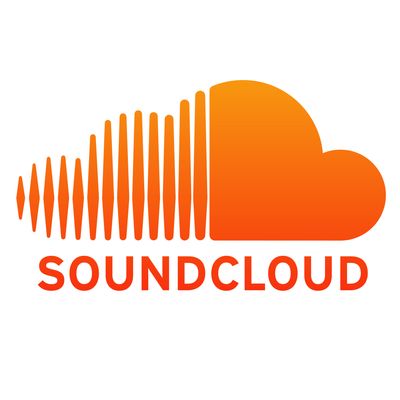
SoundCloud had a death scare this month as a massive wave of layoffs led to apocalyptic reports that the streaming service was hemorrhaging cash and set to fold by the fourth quarter of 2017. Alongside the news came service-journalism reminders for users to “back their shit up,” feverish plans to archive everything before the clock runs out, celebrations of music that fans discovered using the service, and worries about what the loss of it could signal for the future of music. I found some of the thrashing somewhat premature — a sense that was validated when SoundCloud sent a note swearing that it was fine for the foreseeable future. The panic was illuminating, because there shouldn’t have been a panic in the first place.
I’m old enough to be suspicious of the permanence of the music that I love. I’ve seen favorite albums fall out of print, favorite labels dissolve, and favorite record stores turn into boutiques, bars, and restaurants. I grab hard copies of whatever albums make the top of my year-end lists just in case. A lot of great art was set adrift online in the five-year stretch between Napster ripping a hole in record sales and the iTunes Store restoring a semblance of order. Every service we used to find and download music seemed to crumble in short shrift. RIP Rapidshare, MegaUpload, and ZShare. Gone too soon. Remember Audiogalaxy? WinMX? Rdio? MP3.com? OiNK? The (original) Pirate Bay? The lesson of the last 20 years of interactions between music and tech is, to quote Outkast: “Nothing is for sure, nothing is for certain, nothing lasts forever.”
We arrived at the rickety prosperity of popular music in 2017 through a veritable Oregon Trail of setbacks and losses. The shakiness of piracy as a preservation tactic became clearer with the shuttering of each peer-to-peer network, torrent site, and file-sharing service. The present network of streaming services resolved the problem of an audience that wants access to music it doesn’t intend to pay for by offering up a Netflix-like proposition: For a few bucks a month, you can listen to whatever you like without the pesky time and space requirements that come with hoarding and storing music. The network is still full of blind spots and meddlesome exclusivity and availability quirks. If you want to jam “Sober” by Tool, you have to buy a hard copy (or strap on your three-cornered hat and set sail). If you want to hear “Friends in Low Places” by Garth Brooks, you need Amazon Music. The good Jay-Z albums are only on Tidal and Apple Music (Reasonable Doubt only exists on the former). Spotify just got the Beatles a year ago.
SoundCloud entered the streaming business intent on fostering a community of performers and producers not unlike the photo-sharing site Flickr, which helped increase the visibility of photographers outside the confines of tough-to-score website and magazine gigs. SoundCloud co-founder Alexander Ljung told CNBC his start-up was “the choice for creators” and that casual listeners “get a lot of content there that you can’t find in other places.” SoundCloud has indeed become a place where music can flower outside of mainstream channels, and a proving ground for a growing body of artists needling into mainstream renown from unseen angles. (Check the recent Times piece on the year’s boom in lo-fi, teenage “SoundCloud rap.”)
The ease of dropping tracks on SoundCloud made it attractive to artists like Drake who work inside the major-label machine but want to get music to fans without the pageantry of a big single rollout (and ascendant stars like Chance the Rapper who are vocal about cutting middleman overhead out of music distribution). Cooperation with the majors came at a price. The site introduced a “content identification system” in 2011 to respond to pressure from companies complaining about illegal trafficking of their copyrighted material. If the stated purpose of the gesture was to keep suits, artists, and labels happy, the side effect, intended or otherwise, has been the gutting of a florid selection of DJ mixes. SoundCloud is a place for creators … as long as what you’re creating doesn’t set it at cross purposes with someone with a well-oiled legal team.
A community ostensibly built as refuge from the industry’s old ways has increasingly become beholden to them. SoundCloud play counts are de facto signifiers of an artist’s reach for many blogs, where “discovery” sometimes means spotlighting the artist with the heaviest play count but the lightest press footprint. These numbers can and have been gamed, both discreetly and rather obviously, but the real crime in the reliance on them is conflating reach with value. (Ed Sheeran reaches everyone, but not everyone likes him.) Instead of shattering music-biz hegemony, it accidentally created an all-new, all-different version of the same thing.
The most telling outlook on the near-death of SoundCloud has come from artists themselves. The week’s online doomsaying was punctured by remarks from producers and songwriters who have made good use of the service while weathering growing misgivings about the company’s practices. If SoundCloud is no more,” Los Angeles rapper-producer Jonwayne tweeted, “people will continue to make music. Another [better] aggregate will take its place. We won’t miss it.” “Broccoli” and “Cash Machine” singer-rapper D.R.A.M. offered a similar sentiment: “Shoutout all my people who started from SoundCloud but graduated to other platforms. We gon’ be alright, I promise.”
Artists know what every creative who prospered with the help of the internet had to learn the hard way: Platforms come and go. It’s people and talent driving the arts. Hedge your bets. Post anywhere you can be seen. Don’t trust the cloud. Don’t get too comfortable with any one way of traversing the internet. Be prepared to adapt when things shift. Back your shit up. You’ll be fine.





